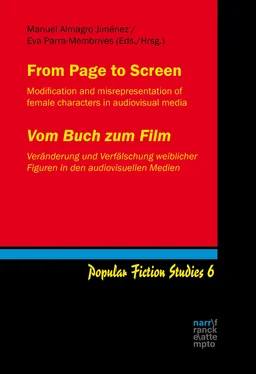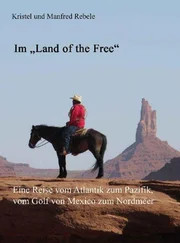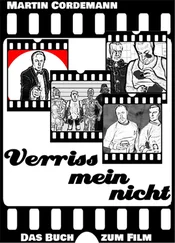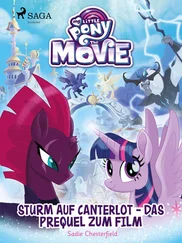At the same time, Ellie’s character is also upgraded in the film. To begin with, unlike in the novel, she is not Alan’s student, although his academic and professional status is clearly above hers (this is made clear by the differences in their interventions and their body language both at the excavation site and in their first meeting with John Hammond). Also, she is not only knowledgeable, articulate and a valued professional (John states she and Alan are “the top minds” in their field), but she is also a much more active, empowered and independent character in the film. When hell breaks loose in the park, she does not stay in the lodge to take care of Ian, but rather she goes out to do things: she becomes a doer, a problem-solver and a dinosaur-fighter, all of which are male prerogatives in the novel. Indeed, in the film she does the things Donald Gennaro does in the novel: she is the one to venture out with Robert Muldoon to look for the kids and, later on, to get the park’s power back on. And she is the one who actually restores the power in the park. Not coincidentally, the character has been described as “a pioneer for female characters in monster/action/adventure blockbusters. She handles herself in the face of the dinosaurs better than most of the male characters, and does so as a brilliant, strong and confident super-woman” (Fisher, 2014: 206). Her depiction in the film though is far from perfect patriarchal constructions such as Mary Poppins or Catwoman, coming closer to a feminist reinterpretation of the character.
Hers are also the film’s famous feminist lines, which are not in the novel: “Dinosaurs eat man… Woman inherits the earth” and “We can discuss sexism in survival situations when I get back” (Kennedy, Molen, Spielberg, 1993: 45:15, 1:37:25). Finally, she is the one to openly confront John Hammond about his crazy venture. Here there is an interesting swap. In the book, it is Ian that mansplains scientific discovery to Ellie, doing a sort of ecofeminist critique of scientific advancement, equating scientific discovery and rape, and confronting Ellie as a representative of this: “you don’t restore the land after you dig?” (Crichton, 1990: 329). This leaves her dumbfounded and not very articulate: “There’s no money, I guess…;” “Well, we’re just working in the Badlands…;” “Ellie said nothing;” “You want to turn back the clock?” (Crichton, 1990: 329). In the film, Ellie becomes a much more aware character, closer to Ian’s position but making use of a more composed tone and cogent arguments when confronting John: “The question is, how can you know anything about an extinct ecosystem? And, therefore, how could you ever assume that you can control it?” (Kennedy, Molen, Spielberg, 1993: 37:00). The issue about the poisonous plants in the park disturbs Ellie in both the book and the film; however, only in the film does she dare tell John about it: “You have plants in this building that are poisonous. You picked them because they look good” (Kennedy, Molen, Spielberg, 1993: 37:05). Finally, she acts as an eye-opener for him: “You’ve never had control. That’s the illusion. I was overwhelmed by the power of this place, but I made a mistake too. I didn’t have enough respect for that power, and it’s out now” (Kennedy, Molen, Spielberg, 1993: 1:27:35).
Regarding Lex, in the novel she is a truly obnoxious whiny eight-year-old child whose actions often put her and others in danger. In the film, however, she takes on some of her brother Tim’s traits: she is between 12 and 14 and the oldest of the two siblings, and she is also a computer geek. Her combination of features throughout the film is somewhat startling though. In spite of her being the oldest of the two, she is also clumsier and more fainthearted than her brother: she thinks the big wooden doors to the park will not open (“Are we gonna hit that?”) (Kennedy, Molen, Spielberg, 1993: 41:33); she is fearful of and disgusted by the prospect of the tyrannosaur eating a goat (“He’s gonna eat the goat!?”) (Kennedy, Molen, Spielberg, 1993: 45:53); she falls over and has to be picked up by Alan; she is traumatised by the lawyer leaving the vehicle (she keeps repeating “He left us, he left us”) (Kennedy, Molen, Spielberg, 1993: 1:14:52); she flashes the torch at the tyrannosaur and cannot turn it off after Tim asks her to, causing the attack; her competitive attitude when climbing first a tree and then a fence seems petty, considering the age difference between them; in a rather childish way, she calls the brachiosaurs “monsters” (Kennedy, Molen, Spielberg, 1993: 1:23:05) and Tim has to explain to her what a herbivore is; she is rather inarticulate (the only name she can find for carnivores is “the other kind” and “meat-osauruses”) (Kennedy, Molen, Spielberg, 1993: 1:23:15, 1:34:36); when she finally gathers the courage to stroke the brachiosaur, she ends up covered in snot from the dinosaur’s sneeze, which serves to further ridicule her; and, even when she takes the lead in the kitchen and tries to save her brother, it is Tim who manages to lock one of the raptors up in the freezer. It is only towards the end of the film that Lex is characterised in a more positive light, as she is the only one with the necessary computing skills to reboot the system, making it possible to set up the security system again and call for help (it is Tim who does that in the novel). In spite of this, and unlike in the case of Ellie, the combination of downgrading and upgrading strategies does not seem to work very well for Lex: she is presented throughout as an annoying, frightened and clumsy character whose redemption at the end is more a token gesture than a genuine attempt at upgrading the character and giving her a nobler role in the film.
As has been shown, combining both downgrading and upgrading mechanisms, Jurassic Park offers a complex analysis of secondary female characters in their passage from book to film. This is uncommon in blockbusters and family films, often characterised by plot simplification, a smaller number of secondary characters and the use of downgrading strategies for female characters. This is possibly due to two factors: on the one hand, Jurassic Park is one of the very few examples in which both the book and the screenplay were written by the same author2, and in which there is a woman screenwriter, Malia Scotch Marmo, who has been said to be responsible for making Ellie and the kids “more assertive” (McBride, 2011: 418). On the other hand, the book’s and the film’s releases were closer in time. This is also true of, for example, Big Fish (book 1998; film 2003), where secondary female characters also fare a bit better in the film than in the book. In a way that may seem contradictory, the need to modernise and update the gender politics of a story seems to be felt as more pressing the closer the dates of the releases. As the following section shows, the use of an older text brings about issues of fidelity and the opportunity to perpetuate anachronistic gender politics.
Rudyard Kipling’s The Jungle Book (1894) and Disney’s 1967 homonymous animated film (Disney, Reitherman, 1967) serve as the basis for the 2016 Disney production (Favreau, Taylor, Favreau, 2016). Written for the screen by Justin Marks and directed by Jon Favreau, the 2016 family feature makes use of both computer-generated imagery (CGI) and live action to revive the old classic and make it more appealing to younger audiences. It has been contended that the film strives to shake off the rather dubious imperial, racial and gender politics of the 1967 version while purportedly getting closer to the book (Keegan, 2016), a claim that seems contradictory at best. Regarding gender, what the film actually does is lazily gloss over the most salient controversies of the 1967 version (the almost total absence of female characters from both the main story and the background plots and the cringeworthy final scene in which an overtly sexualised girl entices Mowgli into the human village, cancelling out his rational judgement and willpower) while leaving Kipling’s (and Disney’s) problematically gendered narrative unchallenged.
Читать дальше












